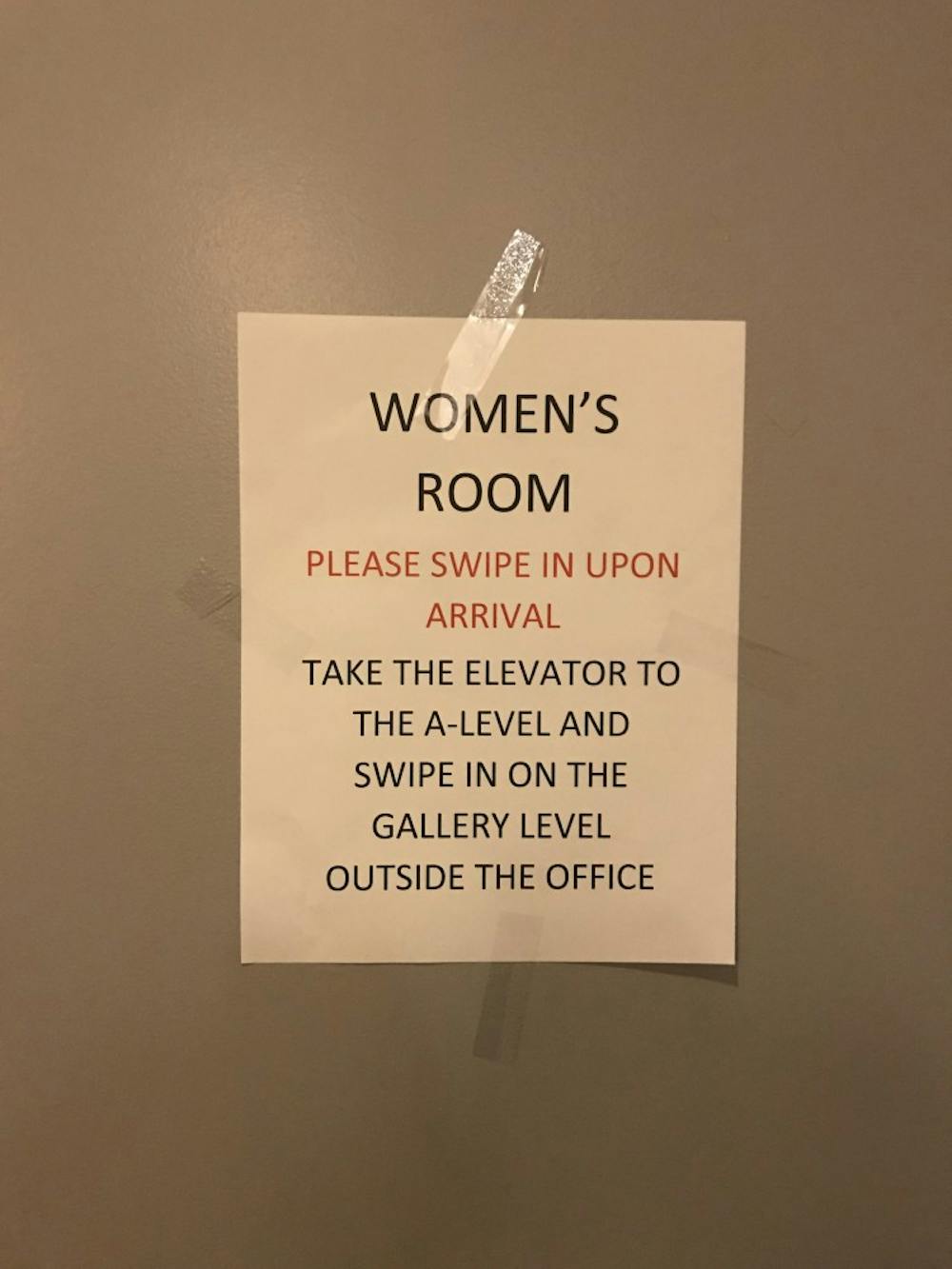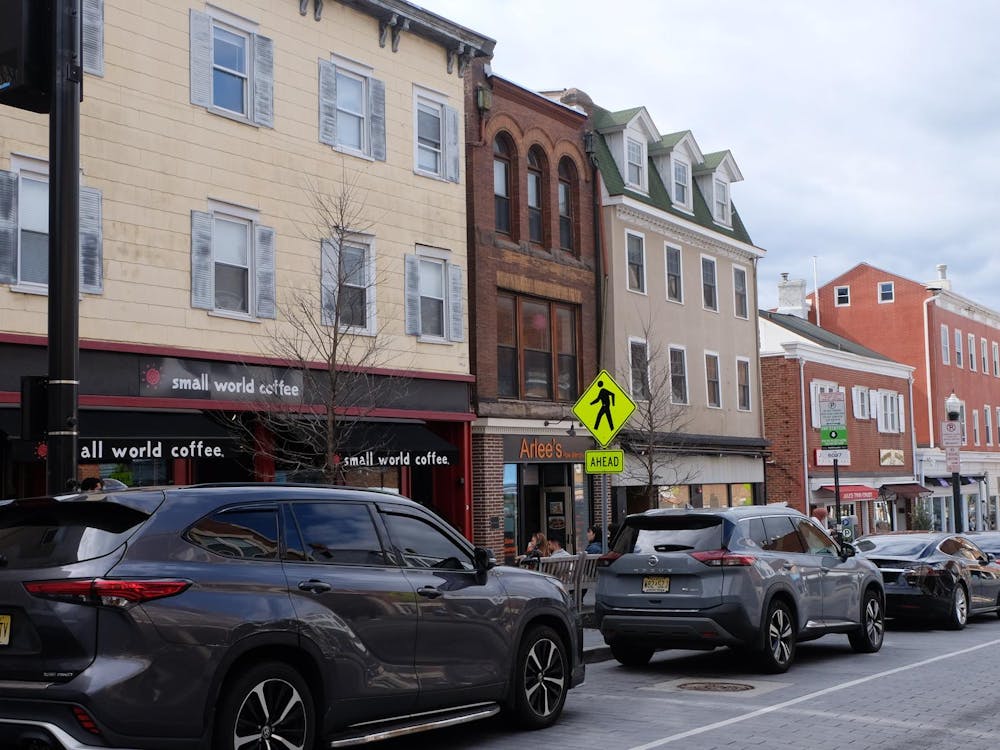In March, when Winter Storm Stella was scheduled to disrupt the University community in the midst of midterms, the University had to shift into emergency gear. Closed to non-essential personnel, the University hunkered down for what turned out to be a milder storm than anticipated. Nonetheless, the preparations had been made.
University dining staff slept in the multipurpose room of Frist Campus Center and in the Graduate College in preparation of the University’s closure to all but essential personnel, the ‘Prince’ previously reported.
A recent protest led by the Young Democratic Socialists of Princeton inspired further debate on campus regarding the treatment of University staff during emergency situations. The protest was bolstered by a letter to the editor from campus dining staff wherein the authors claimed that, although it was helpful to have voluntary accommodations provided on campus, such accommodations were inadequate.
The letter from Campus Dining employees and shop stewards of Service Employees’ International Union Local 175, the union which represents University dining staff, noted that male and female workers were housed together overnight in one big room without any dividers between cots. The letter’s authors, Christiana Augustine and Russell Weiss-Irwin, also argued that cots would keep workers from sleeping well. Moreover, because the University declared the storm over at 5 p.m. instead of when the storm actually ended, workers who had to commute through challenging conditions were paid as if they were on a regular shift, which the letter argues is “totally unfair.”
The University, on the other hand, refutes the charge that men and women slept in the same place, explaining that men and women slept in separate rooms.
On March 13, administrators met to discuss the continual weather updates that the University has access to, Assistant Vice President for Communications Daniel Day said. By that afternoon, the University had published a notice on their website indicating that the University would advise on the weather emergency early Tuesday morning.
According to Executive Director of Campus Dining Smitha Haneef, University staff determined there were very few hotel rooms available — only a total of 11 on Monday in Route 1 hotels. Accommodations in town at the Nassau Inn, Palmer House, and some some guest quarters at Princeton Theological Seminary were entirely full. To accommodate essential personnel that would be needed to keep the University running during midterms, the University offered to house people on campus. Those who could commute by themselves from Route 1 hotels stayed in hotel rooms — most were managers, sleeping two to a room — while those who stayed on campus were both lower-level employees and those unable to commute to campus. Assistant Vice President for Human Resources Romy Riddick explained that these workers could not rely on public transportation or University transportation from the hotel rooms based on weather reports.
A total of 39 workers were housed on campus, with 31 stayed in Frist and eight in graduate housing, where accommodations were one per room, according to Riddick. In total, 188 team members were on campus March 14.

Haneef explained that this is not the first time accommodations have been made for staff in anticipation of a weather emergency, but said that they had previously housed staff members in Dillon Gymnasium.
Day said that a 24-hour window in advance of weather forecasts is the optimum time for gauging how the University should respond to emergency situations.
“We had a big bust storm a year ago where the weather forecasters were completely wrong about it,” Day said. He explained that 24 hours in advance looking for hotels seemed about right.
The chain of command through which workers were informed began with an overall administrative University-wide decision to declare a weather emergency. This cascades through administrative and staff levels to inform personnel of their role either as essential or non-essential. Riddick explained that there are both operational and departmental level considerations and communications, and that it is “up to those departments to know their business.”

On Monday, when the University determined there were not enough hotel rooms in town, efforts were made to inform staff members of accommodation options and for the University to prepare enough rooms for staff members to stay overnight. Mid-morning on Monday, Campus Dining managers “held ‘huddles’ explaining the continuous operation plans to staff members they supervise at the dining halls, Frist Gallery, and the C-Store,” Haneef wrote in an email follow-up to an interview. Supervisors gave the workers their accommodation options and also explained the “rates of pay that would be used according to the union contract: time and a half while sleeping, double time while working during the hours the University would be closed to non-essential staff,” Haneef continued.
In the original ‘Prince’ article, workers interviewed in Frist seemed confused about their payment for staying overnight, and even about whether staying overnight was necessary, but the University contends that this communication burden rests on both the union and the University staff.
“The union takes a lot of responsibility for communicating the information... as there’s a shared responsibility, and management will often inform and discuss in particular if it’s a weather emergency,” Riddick said.
Sleeping arrangements were finalized in Frist around 5 p.m., according to Haneef. She added that in a weather emergency, things change by the half-hour.
Riddick emphasized that if workers elected to return home the night before the storm and were unable to make their shift in the morning due to emergency weather conditions, there would be no repercussions even though accommodations were offered on campus “given that it is a weather emergency.”
“We ask people to call in and inform their supervisors and that kind of stuff, but really there are no repercussions,” Riddick said.
Day said that such working conditions are governed by the contract between the University and the union, in this case SEIU Local 175.
“Any discussions need to come through standard procedures between the union and the University at the bargaining table,” Day said. Riddick, Day, and Haneef emphasized that the University followed the agreed-upon contract exactly.
“I think it is important to note given the concern that’s been expressed, and I appreciate it, and I share it to a certain extent,” said Riddick. “The University has a vested interest that our staff members be paid well and treated properly which comes in the form of a really valid contract.”
Riddick explained that the University is “absolutely open to having negotiations at the bargaining table,” and that there are structures in place to have conversations with the union if staff members are going to the union with concerns instead of directly to the University. During these labor management meetings, Riddick said that members of the union and members of the management representing the union meet monthly to talk about concerns and address mistakes and grievances.
“We have formal channels and we’ll continue to, and that’s a very important thing for labor relations,” Riddick said.
Administrators emphasized that different emergency situations require different courses of action, but weather emergencies are especially unique, requiring real-time communication to ensure all staff members are informed.
This article has been corrected to identify hotel room locations in town and on Route 1.








